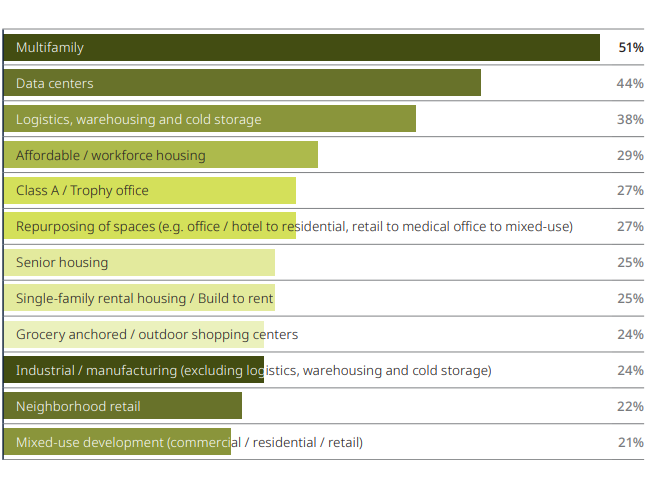April Fool’s Day 2020: No Joke for Borrowers, Loan Servicers
What happens when the COVID-19 shutdown triggers missed payments on CMBS and CLO loans? An analysis from BlackEagle Real Estate Partners' Debra Morgan and Paul Fiorilla of Yardi Matrix.

Debra Morgan, Founder & Managing Partner of BlackEagle Real Estate Partners, and Paul Fiorilla, Director of Research, Yardi Matrix
April 1 is traditionally a day of levity, as millions of Americans engage in April Fool’s Day hijinks. This year, the first of April is significant to the commercial real estate industry for decidedly unfunny reasons.
On that date, the first commercial mortgage loan payments will be due since the COVID-19 pandemic overtook the U.S. If the CMBS and collateralized loan obligation markets experience a significant wave of late or missed payments, it will force a series of hard decisions that will have a profound impact on the market.
READ ALSO: At Long Last, the Cycle Ends. What’s Next?
Roughly half of the country lives in areas with mandated quarantines of businesses, retail establishments, schools, transportation and more, and some 3.3 million workers have filed for unemployment insurance. The coronavirus and the shutdown have severely disrupted commercial tenants’ ability to operate their businesses and pay rent. That, in turn, makes it difficult, if not impossible, for property owners—particularly lodging and retail—to make loan payments, salaries and building expenses.
“The lodging industry will not be able to cover operational costs for many months, and it is expected that it will take four to five years to get back to the value level the industry was at the end of January 2020,” said Keith Thompson, a principal at Avison Young.
Forbear or transfer
What happens on April 1 if mortgage payments are not paid? For the estimated $600 billion of loans held in securitized debt vehicles (CMBS and CRE CLOs), missed loan payments trigger actions that are delineated in servicing agreements. These 400-page contracts outline processes, procedures and reporting requirements to ensure compliance and unbiased loan management for the benefit of investors, whether the securities are triple-A rated bonds or junk-rated B-piece bonds.
When loans in securitized commercial mortgage pools fall behind on payments, the servicer should contact the borrower to evaluate the likelihood that the impairment is temporary, and that the loan will return to performing within a reasonable timeframe. This analysis supports a short-term forbearance agreement and provides the borrower with breathing room to recover. If not, the loan should be transferred to the special servicer for workout. The typical protocol—unless the special servicer declares the loan in imminent default and “waives” it into their shop—is that the loan must be 30 or 60 days delinquent before a transfer and meaningful dialogue with the borrower.
The growth in delinquent loans means that servicers will be responsible for quickly ascertaining market knowledge, understanding the impact of any federal, state or local order, and engaging with thousands of borrowers within the next few months. Servicers will be charged with making recommendations based on market fundamentals, such as businesses re-opening, generating enough cash flow to cover operations, and being able to service debt.
Another issue is that, because of the temporary and unprecedented nature of the decline in operations and cash flow, there may be social and political pressure on servicers to grant a payment forbearance. An automatic forbearance policy not carefully documented may challenge the language of the servicing agreements. It also raises questions regarding the servicing standard (the duty servicers must manage each loan independently and to the highest standard of care) in the event a loan is eventually restructured while comparable loans are foreclosed with significant losses, fees and costs.
“The agreements that servicers must follow require that decisions are made with respect to each mortgage loan,” said Brian Olasov, an executive director at law firm Carlton Fields. “The servicer must apply its reasonable business judgment to maximize recoveries and minimize losses to bondholders. It can be argued that blanket responses across disparate loans don’t comply with that requirement, even if the end decision is the same.”
Default scenarios are certain to increase in coming months. Typical remedies used to cover operations and cash flow shortages, such as cash management, waterfalls and use of cash reserves, are likely to be strained. And only the most well-capitalized and experienced borrowers are likely to have the wherewithal and limited partners willing to honor a capital call. It will be difficult to secure a capital call from pools of small investors (i.e., crowdfunding, high net worth individuals) or even from institutional partners in this market.
Servicing Challenges
In an ironic twist, the healthy performance of the $3.6 trillion commercial mortgage industry may make it more difficult to respond to the delinquencies likely to be caused by COVID-19 quarantining. The loan default rate has steadily declined since the all-time high of 10.3 percent in July 2012, according to Trepp. As of the fourth quarter of 2019, less than 1.0 percent of CMBS collateral that was originated after the financial crisis was 60 days delinquent or more, according to Moody’s.
Loans originated after the Great Recession have been underwritten more conservatively, and the market in most, if not all, real estate asset classes has been improving since 2012; as a result, default rates are substantially lower on post-Great Recession securitizations vs. pre-Great Recession securitizations, according to Morningstar|DBRS.
The decline in delinquencies and the growth in the commercial real estate markets has led to another trend: Industry talent has tended to pursue careers in investment banking or loan origination rather than loan servicing. This trend will reverse, and professionals from the loan origination team, underwriting or other specialties will move to their firm’s loan workout or special situation groups.
A typical distressed situation involves managing legal and third parties; investor calls; inspecting the real estate and understanding the market; reviewing financial statements and business plans; and meeting with the borrower. Meanwhile, the industry is currently under work-from-home and social distancing directives.
Ironically, servicing compensation has decreased since the Great Recession even as servicing responsibilities have increased. Loan servicing is not highly profitable and the economics around compensation are not transparent. Companies generally receive nominal fees based on loans under management and a success fee (also known as liquidation or workout fee) on resolved loans or the proceeds from the sale of a foreclosed property. And servicers are no longer allowed to use affiliates for services that would typically generate additional income for the company.
Patience is key to recovery
Property owners are experiencing an unprecedented challenge. The largest retail REITs have been forced to temporarily close their malls. Lodging firms, including Marriott International Inc., Hilton Worldwide Holdings Inc. and Hyatt Hotels Corp. have furloughed thousands of employees. Office buildings, most retail establishments and government office have closed, and residential evictions have been stayed.
The situation is fraught with unknowns, including how much government intervention will help. Property income could be boosted by the $2 trillion government relief package, which includes support for businesses and consumers and the Federal Reserve’s promise to buy multifamily mortgage-backed bonds. Freddie Mac and Fannie Mae have issued forbearance recommendations, and regulators are advising banks that through the end of 2020, they don’t have to immediately classify loans with missed payments as delinquent.
While April 1 is a monumental date, the impact of the pandemic on the mortgage industry is just starting. It will take patience and collaboration from all parties to manage through the pandemic and to focus on the real estate that remains impaired into the fall.







You must be logged in to post a comment.